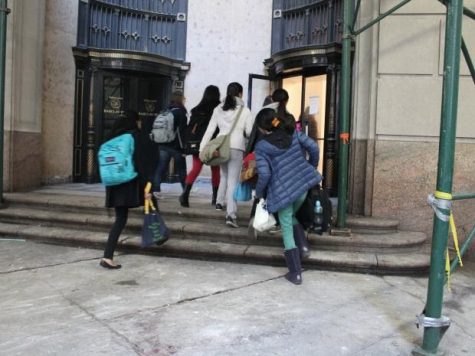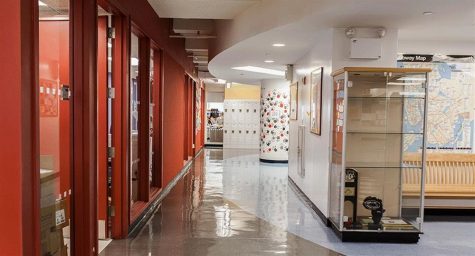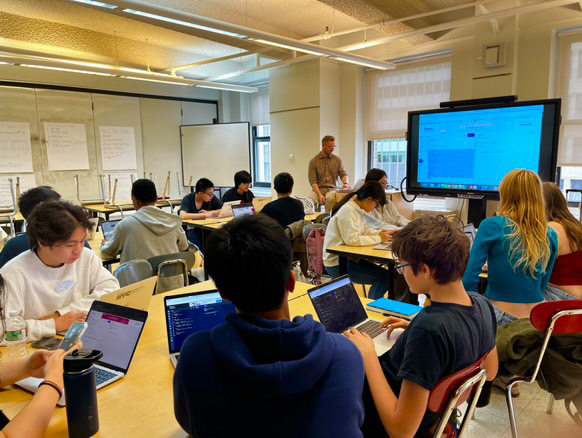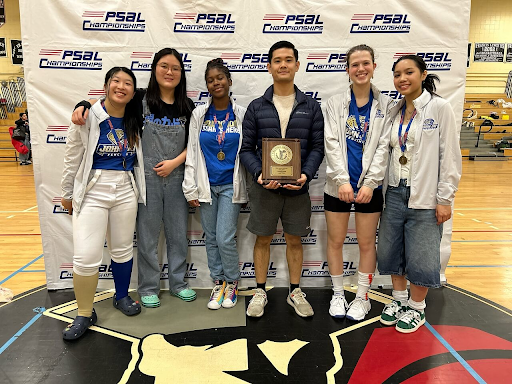Freshman Year at Millennium: Zoom Zombies or Scholarly Screen Students?

Ninth grade, the commencement of high school, marks the beginning of one’s journey through adolescence. This out-of-the-ordinary year is different from the norm in so many ways, and for freshmen, adjusting to a new school without actually stepping foot into the building has been a challenge of its own. We’ve heard from our principal, teachers, and advisors on how they’ve been working to make this year better, and now, with much of the school year behind us, we reached out to students in our grade to learn about their experiences.
From interviews and polls, we discovered that most students agree that shifting to a brand new school and schedule has been strenuous, and there’s been an increase in both mental and academic struggles. Yet for some freshmen, quality of life has actually improved during the pandemic. For those with a long commute, for example, remote learning is more convenient because students don’t need to spend time getting to school. Moreover, sleep schedules have become healthier because kids aren’t waking up as early as they would if we were in person. And, as a result of the school-wide rule of 20 minutes of homework per night (per class), there has been less of a workload in remote learning, and it’s even been labeled as a “more relaxed environment” (for underclassmen at least).

Additionally, some are willing to make the time and sacrifice sleep to connect with pupils and teachers. “I really prefer in person, because it’s more interactive to talk to other students face to face — there’s no barrier to communication,” a freshman vocalized. They also told us: “We spend a certain amount of time with our peers, but all the time spent is talking about classwork so getting to know them outside of school ‘premises’ is super difficult.” Students crave proper communication with students and truly getting to know them — beyond the occasional Instagram DM. According to another ninth grader, “meeting teachers has been fine but meeting my classmates has been awkward because we don’t interact with each other every day.” Unfortunately, in these unprecedented times, it’s become evident that speaking through a screen isn’t the same as fostering a face-to-face relationship, and making friends isn’t as effortless as it appears.
In looking at how freshmen are acclimating academically, students have identified both positive and negative aspects of remote learning. For instance, class engagement has become less burdensome; we’ve been informed that many of our peers actually find it easier to participate in class. A ninth grader explained that they feel pressure from their classmates when participating in-person “as if their eyes are watching me,” but isn’t affected by this when on Zoom. Another student added: “I feel like I participate way more than I usually do in person.” However, this is not the case for everyone, and some pupils have had difficulty asking teachers questions in class and through email. A student explained that they “struggle with overthinking when messaging teachers and have had to adjust their mindset.” Classroom collaboration has also been tough; one student let us know that they “miss working on labs and projects with my classmates.”
Since we’ve all taken (or are taking) Mr. Tan’s notorious health class, we know the significance of mental, physical, and social health: all of which have been severely impacted by remote learning. It’s great that Millennium has made accommodations to help us during this time such as screen breaks, shorter classes, and virtual student lounges, but the fact remains that online classes (for many) are exhausting and isolating. There are some freshmen who prefer “Zoom School,” but it’s clearly not a replacement for the spontaneous side conversations, community building, and collaboration that normally produce lively classroom environments. Nonetheless, through the pandemic chaos and its resulting troubles, we have learned to quickly adapt to remote learning — no matter what is thrown at us. Hopefully, these skills of resilience and agility will prove helpful in ways we can’t yet predict in our high school careers and beyond.




